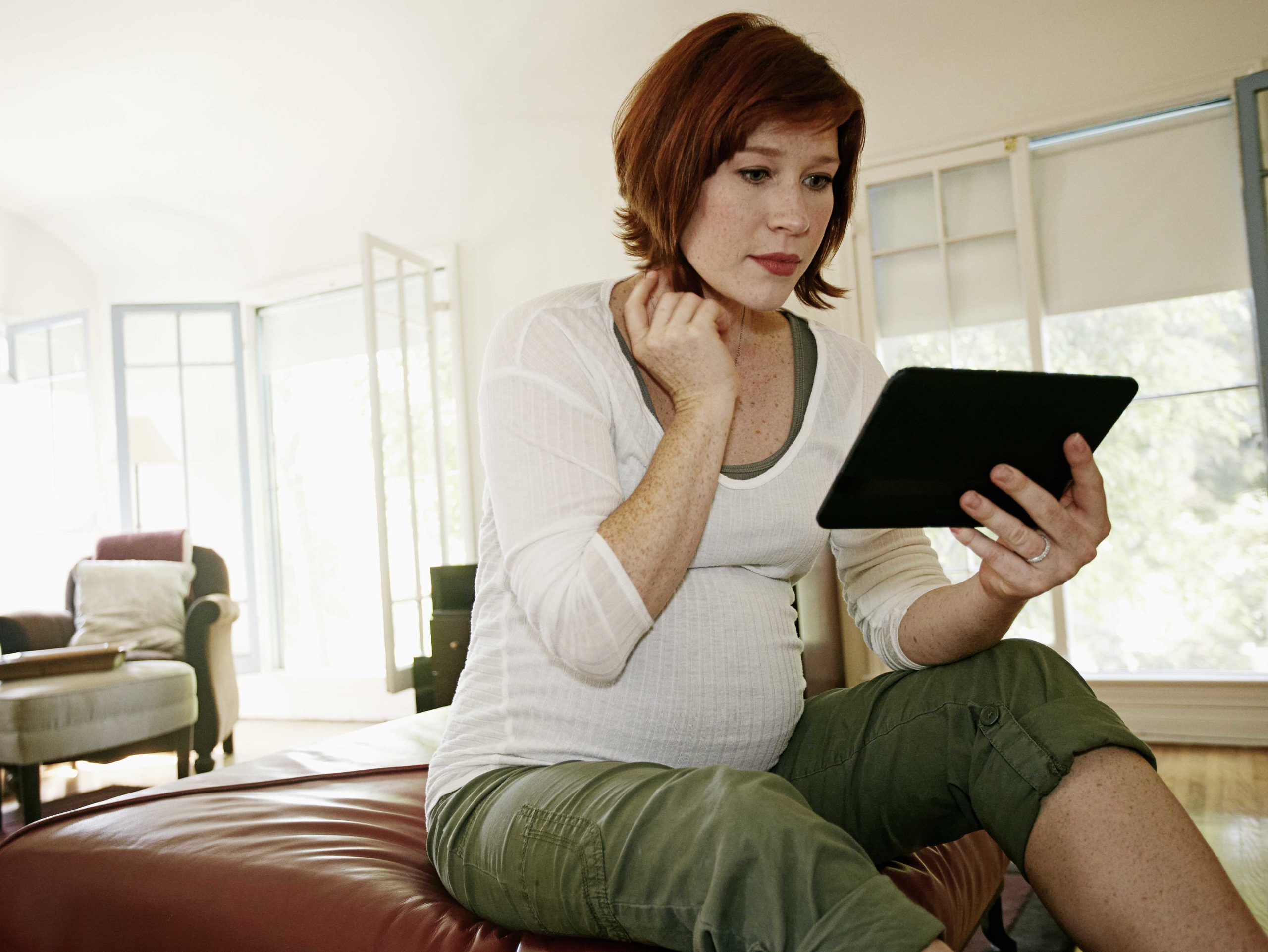Do you trust Dr Google?

Online communities can offer great support to mums but medical advice is best left to the professionals
When Lucinda Barton, 31, was 12 weeks pregnant with her first baby she started having pains in her stomach. Instead of waiting for a doctor's appointment, she decided to Google her symptoms. Worried when she read the symptoms were cause for concern, she visited online forums to put her mind at rest. This was a bad idea.
"One woman posted that I probably had a torn placenta wall, which could cause a miscarriage," Lucinda says. "I was really scared, so I rang my doctor straightaway."
Lucinda's doctor put her mind at ease, giving her the chance to listen to her baby's heartbeat and reassuring her that the pains were caused by her womb stretching to accommodate her growing baby. Her son Harry, now 20 months, was born perfectly healthy.
It's natural when you're pregnant to want to know what's normal, and what's not – and to want to find out immediately. The internet can seem like having a 24-hour doctor 'on call' to answer all your queries.
According to Nielsens' report, Australian Connected Consumers 2012/13, the average Australian internet user spent 23 hours and 18 minutes per week online last year, so it's easy to see where the temptation to search every potential symptom can spring from, and it's hardly surprising that pregnancy-related conditions are a hot search topic.
But while government-monitored health sites provide an official source of health advice, how reliable is the other information online?
Diagnosis trend
Using the internet as an information source isn't unique to pregnancy. New research from the Medibank 24/7 Health Advice Line shows three out of four Australians search their symptoms online, and Facebook is increasingly being used to swap health advice across all ages – with the most common subjects discussed being children's health, colds and fevers.
However relying on dodgy, unverified information can lead to people misdiagnosing themselves, taking risks with inappropriate tests and treatments, wasting money and causing unnecessary worry.
Dr Georgia Karabatsos, medical director at Medibank 24/7 Health Advice Line, would like to see an end to misdiagnosis.
"People call our advice line to discuss their symptoms and what they believe is the diagnosis, based on internet research and social network advice," she says. "The internet is not a doctor – a credible health professional needs to be the first port of all for all health advice," she says.
It is important to note that, while search engines sort websites according to relevance, they do not filter for trustworthiness or validity. Simply typing the term 'medical advice online' into a common search engine will produce an enormous pool of results, few of which are medically sanctioned.
Seeking answers
New mums-to-be have many queries, which of course is perfectly normal, but clinical psychologist Vera Auerbach says pregnancy can also create anxiety.
"Women have lots of mixed feelings while pregnant… [but] there is a limit to how much certainty can be provided," she says. "Often people do strive for answers to their questions, when in fact there are no clear answers."
This uncertainty led Bianca Pannell, 31, into the online world. At 26 weeks pregnant she started having contractions and went into early labour. After being rushed to hospital and hooked up to a drip, the contractions stopped, so she was allowed back home – where she began searching her symptoms on the internet.
"I wanted to know about my baby's chances of survival," says Bianca. "So I started checking to see what he would look like if he were born early, what the complications would be, what the signs of going into labour again were and if there was anything I could do to prevent it happening.
"I spent all my time online researching pregnancy-related problems – and couldn't stop." Luckily Bianca's baby, Mitch, now two, arrived safe and sound.
"I know a lot of the sites I looked at weren't medically correct," she says. "But I did gain some comfort from knowing that other women were going through or had been through the same sort of thing."
Staying safe
Forums can be an invaluable source of emotional support, particularly if you're feeling anxious, but it's important to remember that any medical advice you are given may be unreliable. Be careful to steer clear of negative stories or people making unqualified diagnoses.
Should you decide to become a member of a 'mum-to-be' or 'new-mum' forum, look for one that is moderated by a parenting expert or healthcare professional and that offers positive, objective advice. For more emotional support, a face-to-face support group can help with the general anxiety surrounding the new experience.
"There are some fantastic websites that can be very useful for pregnant women or couples," says Vera, but 'Dr Google' cannot replace the care of a medical professional.
"Talking to your midwife or doctor should always be an option but if you feel you can't talk to them then [theirs] is not an optimal service," says Vera. Finding a caregiver you can connect with is key, so make that person the first point of contact for serious pregnancy concerns.
Surf's up
Consumer advocacy group Choice has these recommendations for wading through the online world.
Look for reputable sites with affiliations to recognised governing bodies or parental resources.
Start with Australian websites as these will be more relevant to you.
Visit the 'links' page for further information and to validate the site's reliability. If a website does not offer a phone number or address, steer clear!
Make a note of these trustworthy resources:
• Healthdirect Australia offers free 24-hour health advice: 1800 022 222
• Pregnancy, Birth & Baby has free counselling and advice 24 hours, seven days a week: 1800 882 436
• The Better Health Channel: www.betterhealth.vic.gov.au
• Australian Breastfeeding Association provides information and support: 1800 686 268 or www.breastfeeding.asn.au
• Parentline (Qld and NT): www.parentline.com.au




